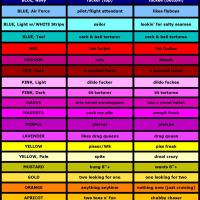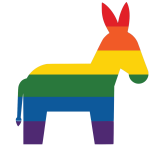
“You may not control all the events that happen to you, but you can decide not to be reduced by them. Try to be a rainbow in someone’s cloud. Do not complain. Make every effort to change things you do not like. If you cannot make a change, change the way you have been thinking. You might find a new solution.”
— Maya Angelou
Maya Angelou said, “I’ve had so many rainbows in my clouds. I had a lot of clouds, but I had so many rainbows.” Within every cloud, there is a silver lining. From every patch of rain, somewhere there is a rainbow to be found. Have you ever had days, weeks, or months in your life when it seems as though the clouds won’t pass and the rain just won’t stop falling? It’s safe to say that at one point or another most of us have experienced this kind of difficult season. Perhaps you lost a lover or friend, or you experienced the pain of death, or maybe life just threw one too many curveballs at once, and you just felt sad for a while. Sometimes that sadness can be overwhelming and take over for long periods of time or may never go away. No matter how it happens, we can all appreciate that life’s moments are not always filled with sunshine.
With this knowledge in mind, there is a simple and powerful perspective that we can all choose to embrace; that each person you come across is fighting a battle you know nothing about. Whether it’s internally or externally, every person you meet is dealing with something that is challenging for them. Angelou wrote, “I’ve learned that people will forget what you said, people will forget what you did, but people will never forget how you made them feel.”
While we certainly can’t save people from their pain, we all have the power to influence one another in positive ways. We each have the power to give to one another in a way that is meaningful and impactful. To be the rainbow in someone’s cloud means to cultivate loving kindness as a daily practice in your life. It means looking into your heart, practicing empathy, and using that empathy to connect to the people around you. We all have the opportunity to be someone’s rainbow. Probably the greatest part of adopting this practice is that our efforts don’t need to be overwhelming. Something as simple as a smile can greatly help someone who is going through a difficult time.
Maya Angelou said she always carried these “rainbows” with her to her speaking and teaching engagements, whether in a large venue or an intimate classroom. “I bring everyone who has ever been kind to me with me,” she said. “Black, white, Asian, Spanish-speaking, Native American, gay, straight, everybody. I said, ‘Come on with me. I’m going on the stage. Come with me. I need you now.'” Whether her “rainbows” were living or had long since passed, Dr. Angelou said she always felt and drew strength from their support. “I don’t ever feel I have no help,” she said. “I had rainbows in my clouds.”
She also encouraged people to apply the “rainbow in the clouds” philosophy to their own lives. “The thing to do, it seems to me, is to prepare yourself so you can be a rainbow in somebody else’s cloud. Somebody who may not look like you. May not call God the same name you call God — if they call God at all. I may not dance your dances or speak your language. But be a blessing to somebody. That’s what I think.”
To choose to live from a place of loving-kindness is one of the greatest gifts you can give to the world and to yourself. Not only will you impact others in a positive way but you also give yourself a purpose outside of your own needs, which brings fulfillment and ultimately happiness for you too. When we are kind to others, we learn that we matter, that we are powerful, and that what we do on a daily basis really does have an impact on the world around us.
Try to be a rainbow in someone’s cloud today and practice more kindness in your life.


























